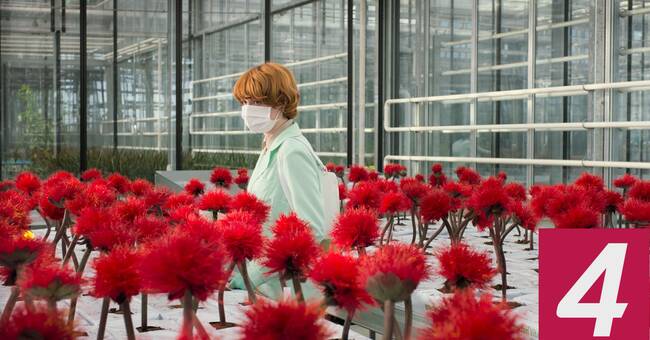The Austrian director Jessica Hausner is happy to be inside and cave in the psyche. Man's self - perception, perception of the world and of others. Where do I end and where do you start? Am I part of the world or can I see it from the outside? In her breakthrough film, The Miracle of Lourdes, she showed her stubbornness both aesthetically and in subject choice. She seems as pedantic as Roy Andersson but with an interest in psychology rather than symbols of power.
Of course, power and psychology are connected, and Little Joe can be seen both as an existential brooding as well as a social dystopia.
Alice works in a laboratory that produces genetically modified plants with specific properties for a commercial market. Now she has managed to create a strange red flower whose scent makes her owner happy. In violation of all the rules, she scoops home one of the flowers and gives it to her son, she even names it Little Joe, after him. But is Joe happy with his strange flower? Or does he seem more… obsessed?
Hausner works with moods, created by carefully composed still image scenes (photographer: Martin Gschlacht), slow tempo, a well-thought-out aesthetic and a soundtrack that feels like a funny horror cliché. Asynchronous and squeaky strings, cacophonies of mixed dog skulls are dropped like sound bombs even in the quietest scenes. Disturbing and disturbing, but it works. There are no safe rooms or rest here, not even when Emily Beecham's Alice moves gently in wrinkle-free pastel-colored blouses over sound-absorbing carpets.
It's fun with filmmakers who have clear aesthetic signatures. Hausner seems to like draperies that hide something, bare rooms, physical distance between people. Sometimes the faces are so far out at the edges of the film that only the noses protrude. The air in between takes almost physical form, as if you can see all the misunderstandings if you look really closely.
Emily Beecham plays the restraint, in line with her neat workaholic as a character. The working relationship with the assistant, Ben Wishaw, begins awkwardly to slip into immediate discomfort. The acting is characterized by an equally rigid courtesy as the aesthetics in general.
It is possible to see Little Joe as an overt hobby-philosophical thought, but with me it reaches into the really lumpy existential questions and I notice that I ponder the film for several days afterwards. Am I happy or just being manipulated? Does it matter?
And I shudder at the thought of a world where everyone walks around saying they are happy while watering their genetically modified prison guard with an empty eye.

